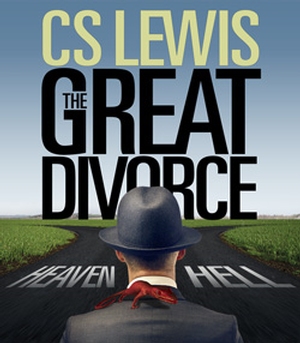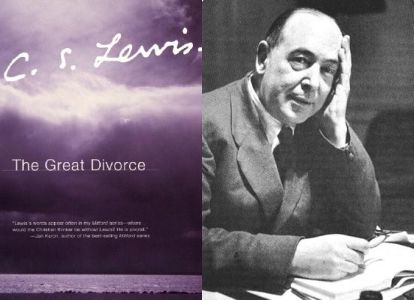
Love is such a misunderstood word. Every good thing that emanates from God can and has been perverted. Some expressions that we call love are just the opposite. C. S. Lewis gives us an excellent, and disturbing, example of this in The Great Divorce.
In the fanciful tale of a bus trip from hell to the outskirts of heaven, Lewis lays bare all the roadblocks people set up that keep them from acknowledging God and His truth. One episode involves a mother whose son died, leaving her beside herself in grief, anger, and resentment toward any God who would deprive her of her greatest possession. And “possession” is the correct word here.
“If He loved me He’d let me see my boy. If He loved me why did He take Michael away from me?” The question wasn’t a genuine question. It was an accusation. The Bright Spirit who had been her brother on earth answers that it was for both Michael’s sake and hers that he had been taken away.
“Human beings can’t really make one another happy for long. . . . He wanted your merely instinctive love for your child (tigresses share that, you know!) to turn into something better. He wanted you to love Michael as He understands love. You cannot love a fellow-creature fully till you love God. . . .
“It was a case for surgery. When that first kind of love was thwarted, then there was just a chance that in the loneliness, in the silence, something else might begin to grow.”
That explanation brought only heightened indignation. That’s “cruel and wicked nonsense,” cried the mother. “Mother-love,” she asserted, “is the highest and holiest feeling in human nature.” Not true, her brother responded: “No natural feelings are high or low, holy or unholy, in themselves. They are all holy when God’s hand in on the rein. They all go bad when they set up on their own and make themselves into false gods.”

The mother refuses to see the truth, that her “love” is little more than a possessive thing. Her final rant makes that clear:
“Give me my boy. Do you hear? I don’t care about all your rules and regulations. I don’t believe in a God who keeps mother and son apart. I believe in a God of love. No one had a right to come between me and my son. Not even God. Tell Him that to His face. I want my boy, and I mean to have him. He is mine, do you understand? Mine, mine, mine, for ever and ever.”
The Lewis character in the novel is being led through these outskirts of heaven by George MacDonald, one of Lewis’s favorite authors. MacDonald sums it up for the Lewis character in this way:
“Someone must say in general what’s been unsaid among you this many a year: that love, as mortals understand the word, isn’t enough. Every natural love will rise again and live forever in this country: but none will rise again until it has been buried.“
“But none will rise again until it has been buried.” That’s the real message here. Only when we die to self, only when we submit all of our natural feelings and desires to the Lord can we see resurrection of true feelings and desires. And therein lies hope—the genuine hope that rests in Him.
